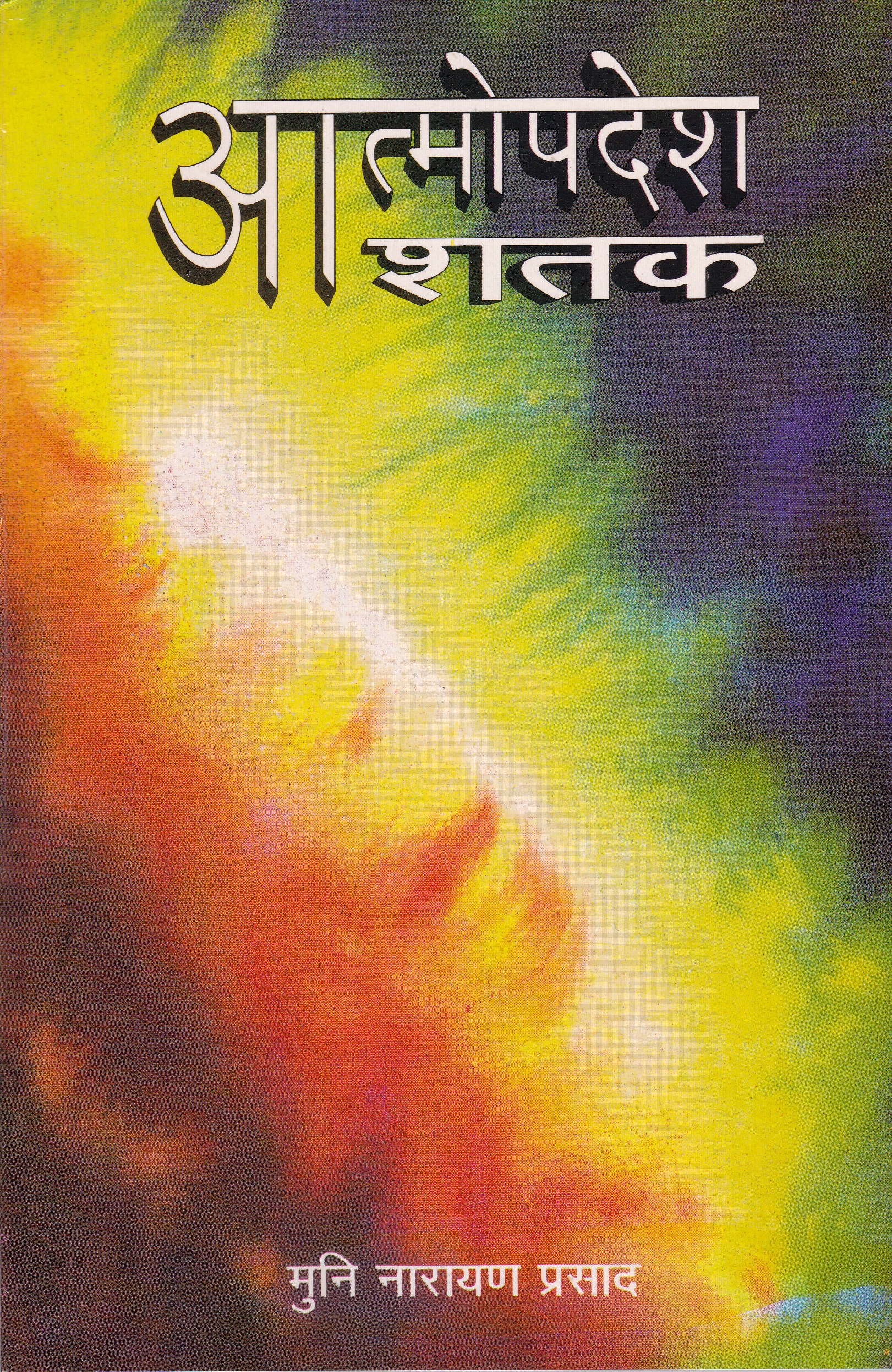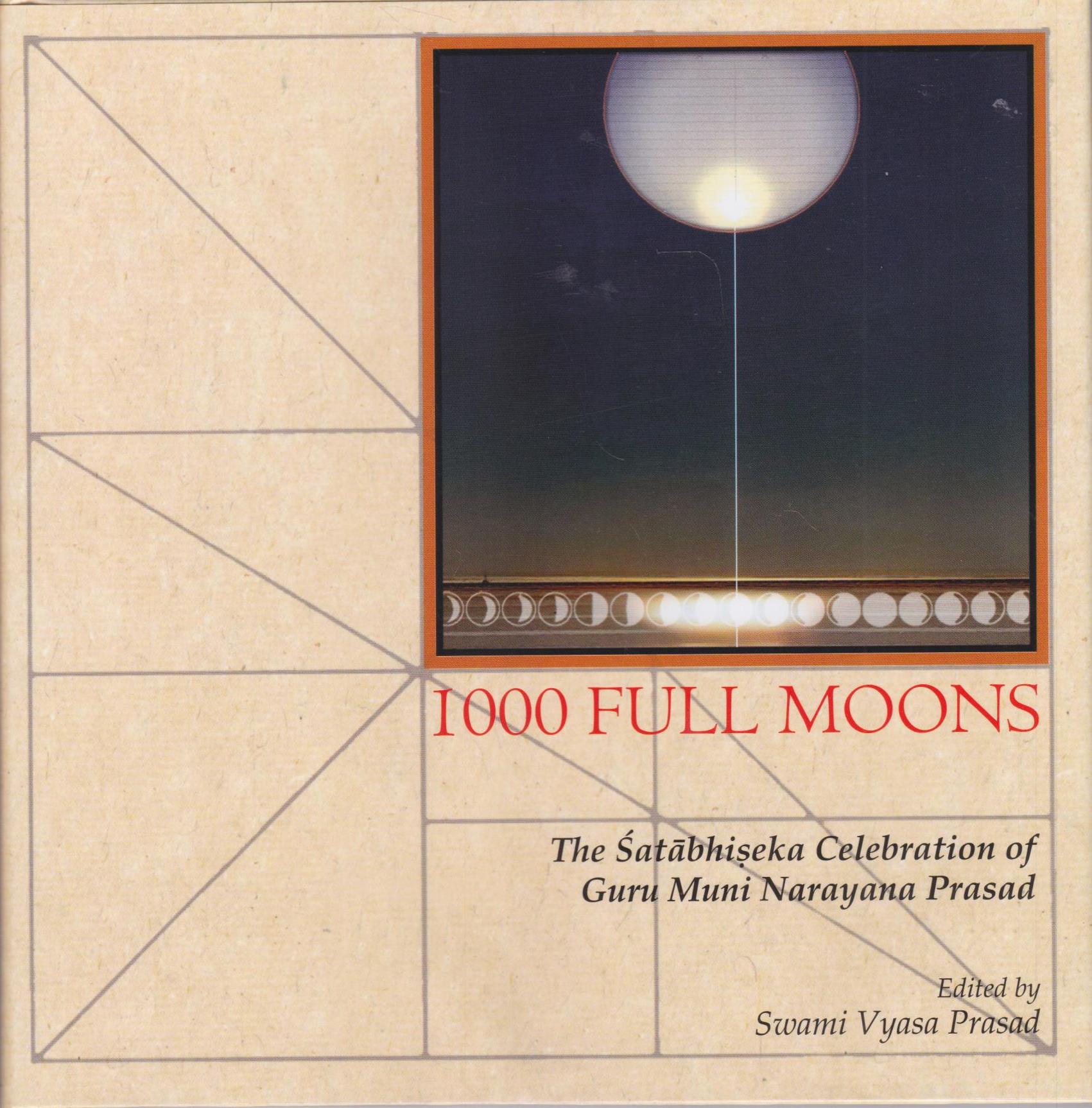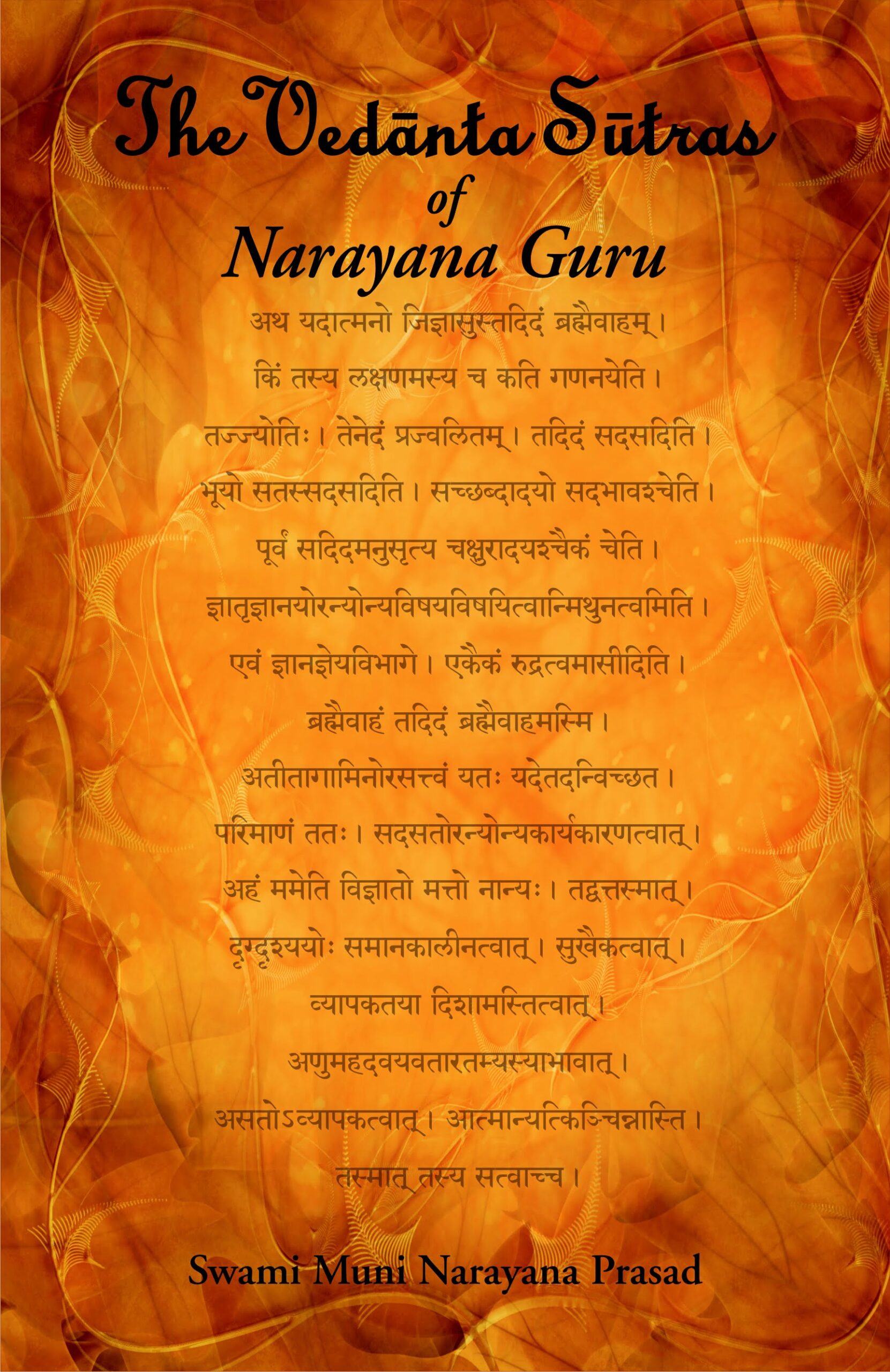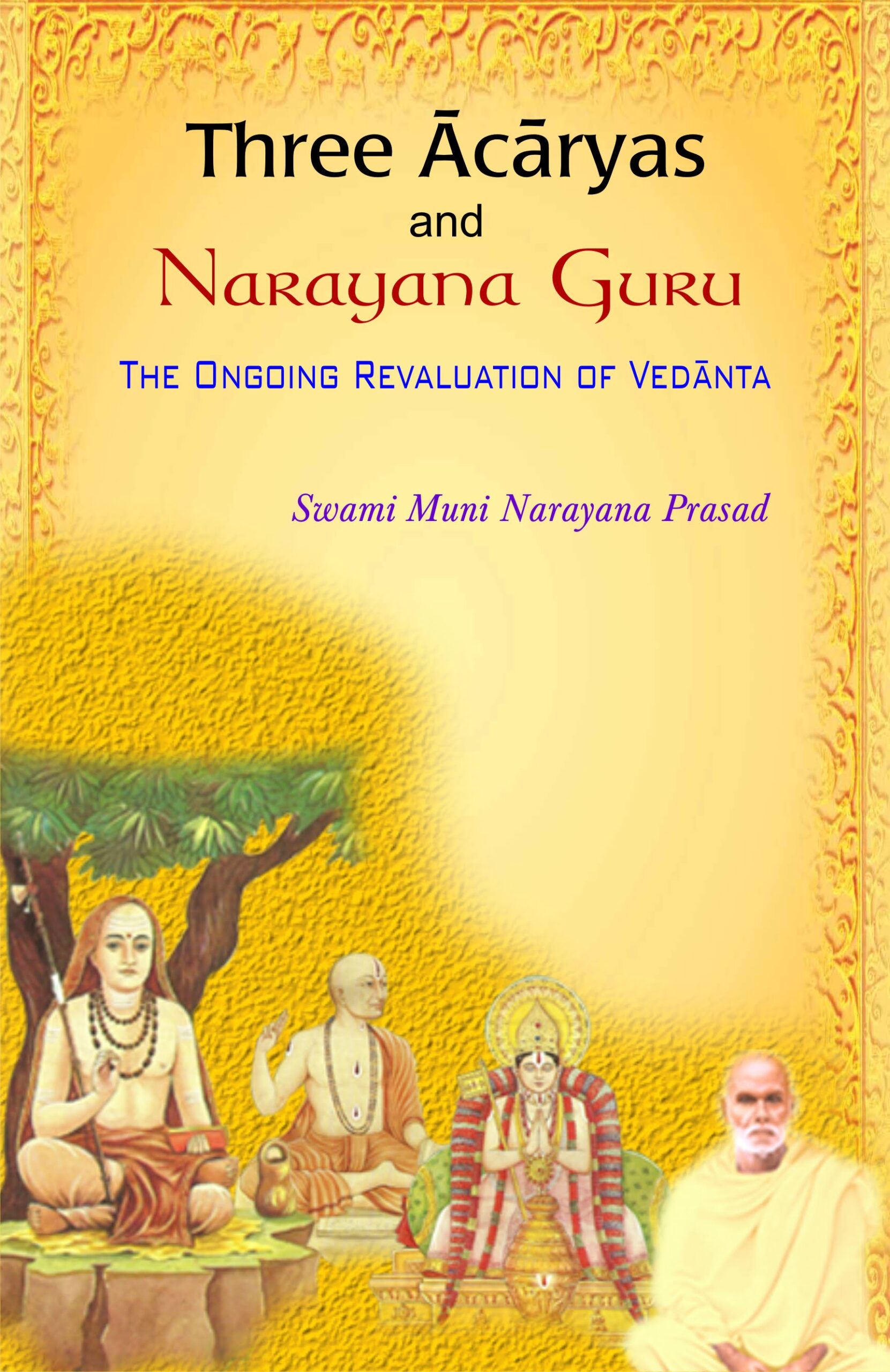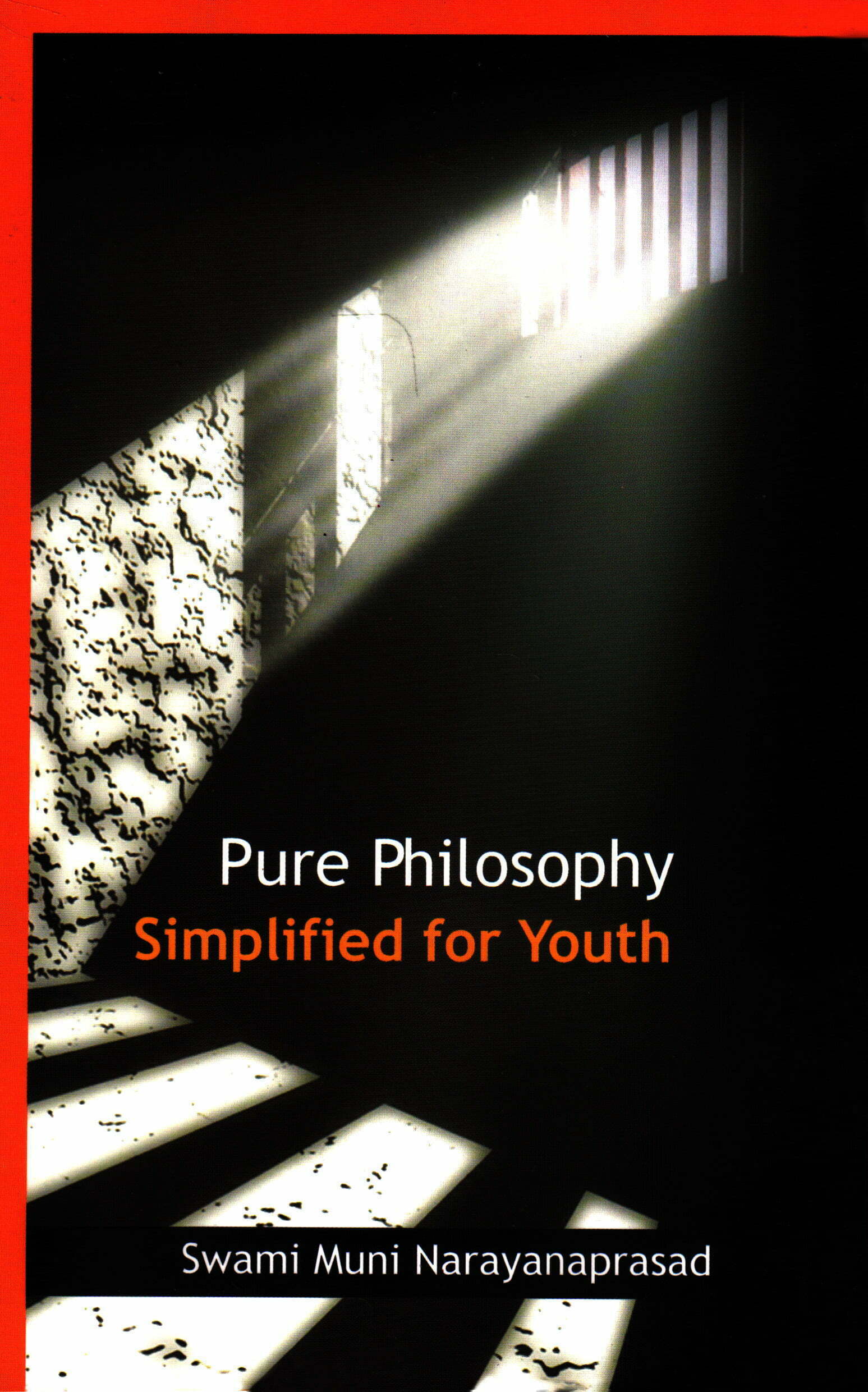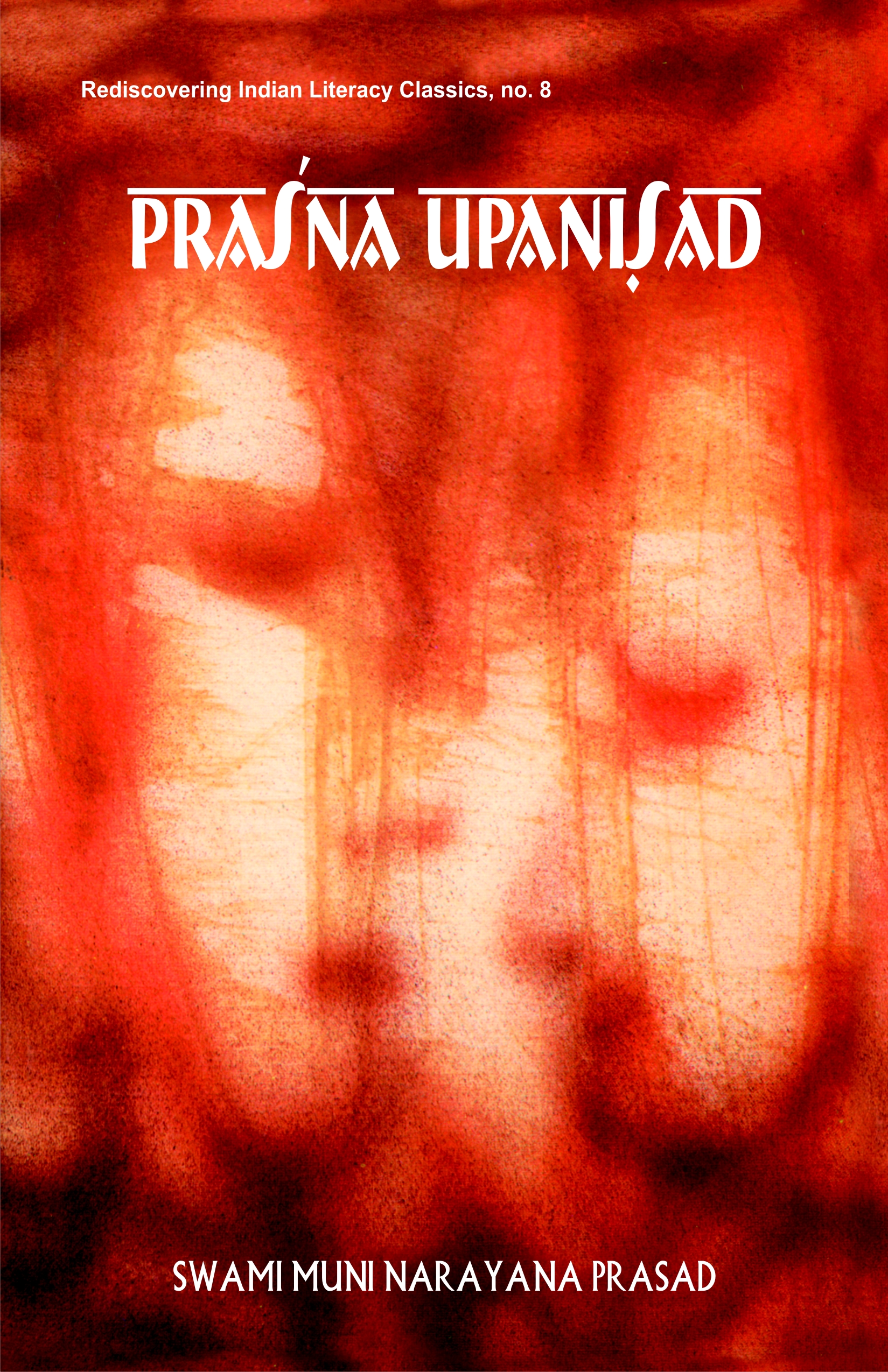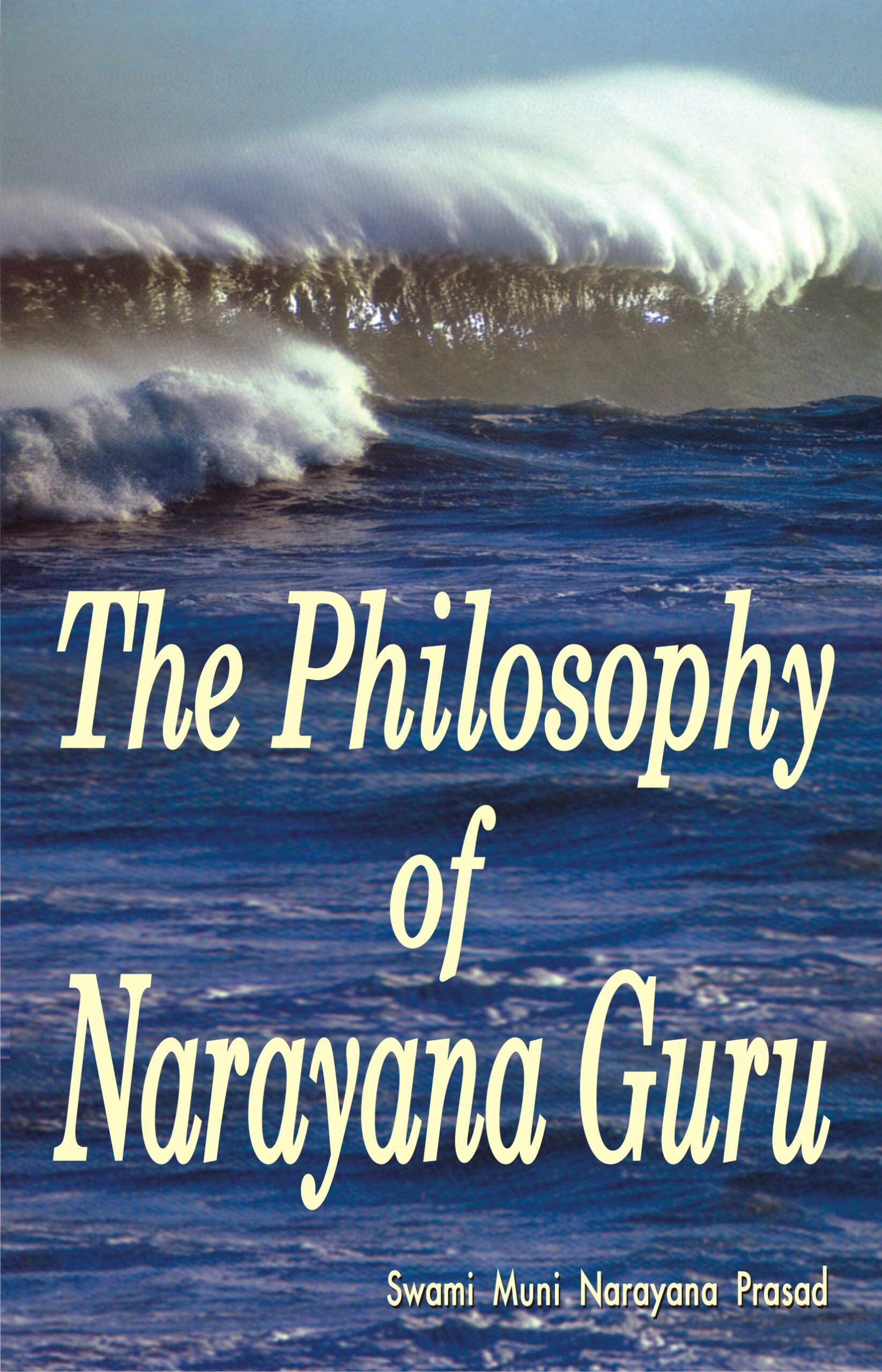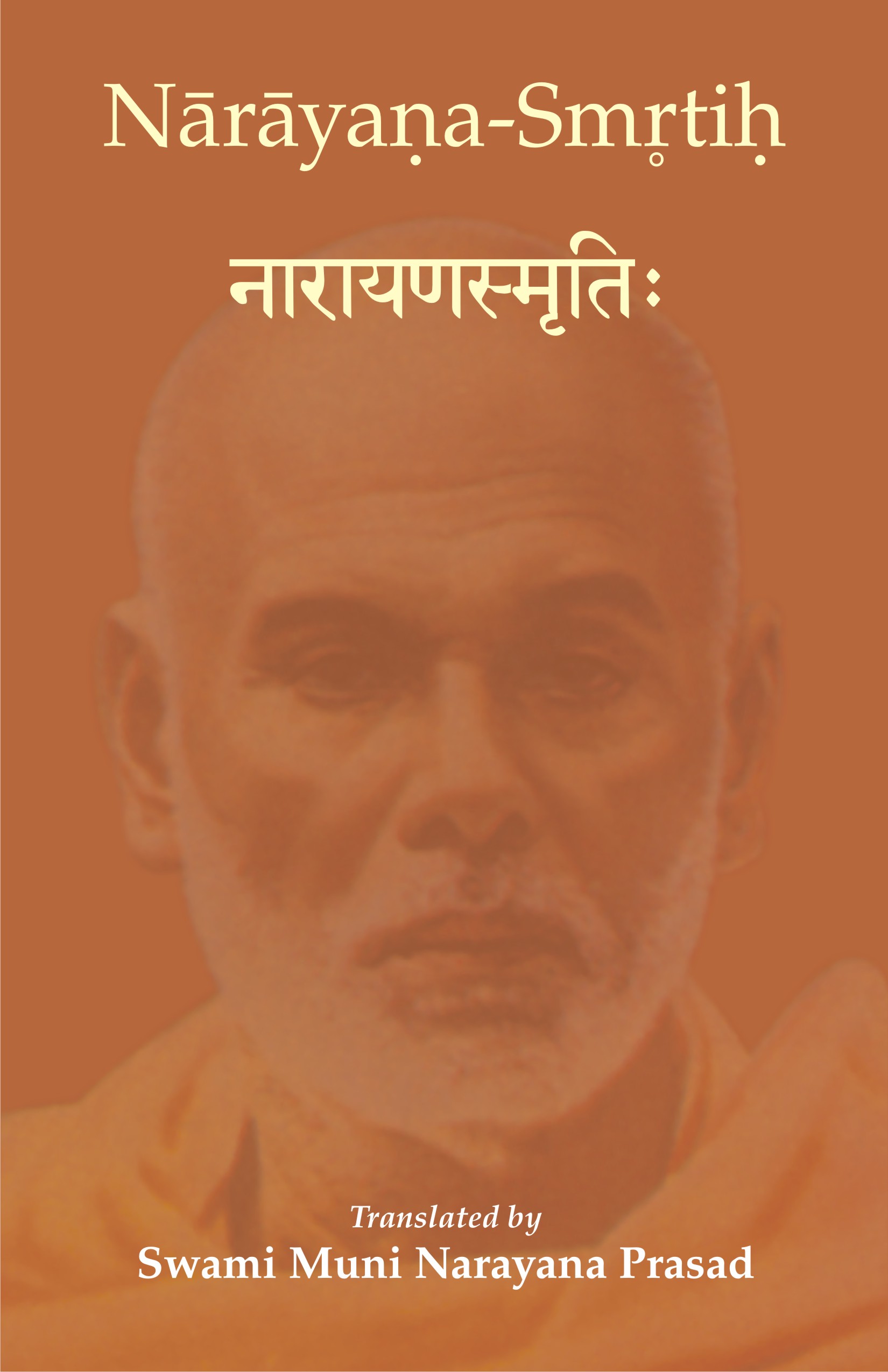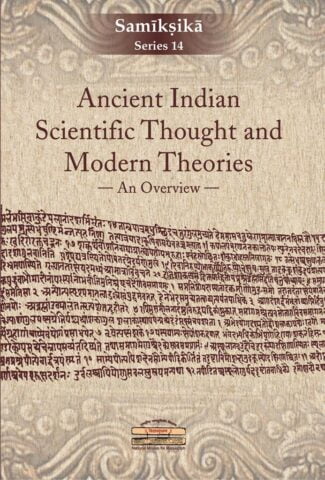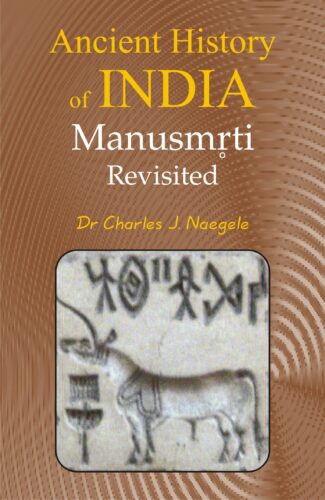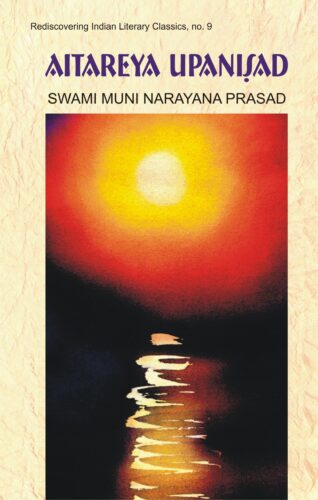-
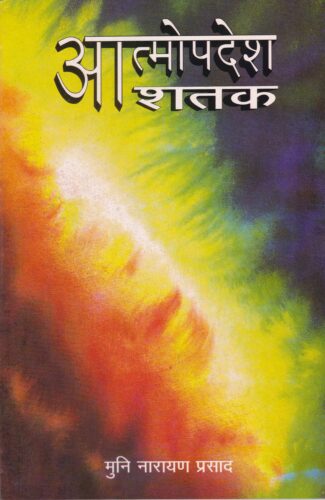
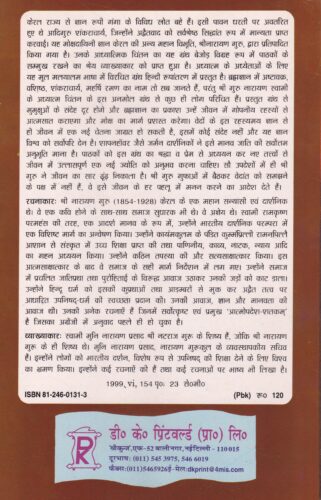
Atmopadesh Satak...
Atmopadesh Satak
One Hundred Verses of Self-Instruction by: Narayana Guru , Swami Muni Narayana PrasadAtmopadesa Sataka, mentioning one single principle, explains that mere virtue of gaining knowledge is not an end in itself. Its usefulness should be seen in the social, religious and veneration realms.
₹120.00 ₹108.00
ISBN: 9788124601310
Year Of Publication: 1999
Edition: 1st
Pages : iv, 156
Language : Hindi
Binding : Paperback
Publisher: D.K. Printworld Pvt. Ltd.
Size: 22 cm.
Weight: 200
Atmopadesa Sataka, mentioning one single principle, explains that mere virtue of gaining knowledge is not an end in itself. Its usefulness should be seen in the social, religious and veneration realms.

-
Sale!Manusmriti-Prachina Bharatiya Mulya evam Darshan (Part 2) by: Sushim Dubey
₹850.00₹765.00“प्रस्तुत ग्रन्थ प्राचीन भारतीय मूल्य एवं दर्शन शृंखला के द्वितीय भाग है। मनुस्मृति प्राचीन भारतीय धर्मशास्त्र परम्परा का आधारभूत ग्रन्थ है। भारत का प्राचीन धार्मिक इतिहास सामाजिक संरचना, राजनीतिक मान्यताओं इस ग्रन्थ में जो प्रतिनिधिक वर्णन मिलता है।
मनुस्मृति मूल रूप से आध्यात्मिक मान्यता परक ग्रन्थ रहा, जिसमें कालक्रमः से समाज.व्यवस्था, वर्णव्यवस्था एवं अनेकानेक बातें समाहित होती चली गईं। तथापि मनुस्मृति की सर्वोपरिता आर्यवर्त में सहसीरों वर्ष तक निर्विवाद रही। धर्म, कर्म, कर्तव्य, सूतक, प्रायश्चित्त एवं संस्कार आदि के लिए आज भी स्रोत ग्रन्थ के रूप में मनुस्मृति संदर्भ ग्रन्थ है।” -
Sale!Ancient Indian Scientific Thought and Modern Theories by: Dhirendranath Banerjee, Sanjit Kumar Sadhukhan,
₹350.00₹315.00The experiences and knowledge from our past are recorded in manuscripts which have been handed down to us over several thousand years. The Government of India, through the Department of Culture, took note of the importance of this vast tangible heritage and, in order to preserve and conserve as well as to make access to this wealth easy, established the National Mission for Manuscripts (NMM). In order to disseminate the knowledge content of manuscripts, the Mission has taken up several programmes such as lectures, seminars and workshops. The Mission has published the proceedings of the above-said programmes under the following series: Samraksika (on conservation), Tattvabodha (comprising lectures based on manuscripts delivered by eminent scholars), Samiksika (research-oriented papers presented in the seminars), Krtibodha (transcribed and edited texts prepared at advanced level manuscriptology workshops conducted by NMM) and Prakasika (publication of rare, unpublished manuscripts).
Ancient Indian Scientific Thought and Modern Theories makes one revisit the development of Indian science and technology in varied fields since the Vedic period, and suggests that we have a living tradition which is vivid and dynamic, inheriting at the same time claiming freedom from the past. It is the proceedings of a three-day seminar held during 25-27 March 2017 in Kolkata, organized by the Sanskrit Sahitya Parishad, Kolkata, and sponsored by NMM. This volume bears testimony to the fact that Indian sages, philosophers and scholars had a grip on all the topics that the modern-day scientists deal with, including complicated surgery and quantum mechanics. Our Vedas, Upanisads and other literary works were the storehouse of scientific wisdom, though the prevailing socio-religious conditions impeded its widespread dissemination.
This volume is expected to invoke keen interest among all who wants to know about a scientific past that Indians inherit, be a scientist or a layman. -
Sale!Ancient History of India by: Charles J. Naegele
₹500.00₹450.00This is a fresh look at the history of Ancient India, centering on the Law Code of Manu (Manusmriti / Manu Dharmashastra), and its relationship to Rigveda and its possible relationship to the Indus/Harappan Civilisation of 4000 to 5000 years ago. It also throws light on Aryan society and culture, castes and guilds, use of technology and related practices in the Indus Valley Civilisation.
Dr. Charles Naegele, a practicing lawyer in Silicon Valley, California, USA, and a lifelong student of classical Indian knowledge, has written a work that will be certain to stir up controversy regarding the re-dating of the Law Code of Manu and the well-documented research concerning almost no possibility of Aryan Invasion Theory and the numerous similarities between the text of the Law Code of Manu and the archeological finds from the Indus/Harappan Civilisation.
Scholars and history buffs, as well as everyone who is proud of Indian heritage will enjoy not only this work, but also his future works. -
Sale!Aditya Hrdayam by: Swami Tattvavidananda Saraswati
₹180.00₹162.00The ancient Indian tradition and literature accords a supreme place to the Sun in the order of divinities, revering and worshipping it as the life-force of the Universe and the highest Reality. The commentary by Swami Tattvavidananda Saraswati in this volume comes as an attempt to unravel the power and mystique of the Sun as explained in the Aditya Hrdayam, a small canto chapter offering obeisance to the Sun God in the immortal epic, Srimadramayanam of Adikavi Valmiki. The book presents the original Sanskrit mantras of the Aditya Hrdayam along with their Roman transliteration and lucid English translation. The verses are accompanied by detailed annotations that describe every term, concept and idea with great clarity. The commentary, easy to follow and fluent in flow, explores the secret of the eternal stotra, Aditya Hrdayam conveyed by Sage Agastya to Lord Rama using which the latter emerged victorious over Ravana. Aditya Hrdayam is hailed as one of the greatest tributes to the Sun by our ancient sages that provides insights into the importance of the Sun as the creator and sustainer of the Universe, the ultimate source of all wealth. The commentary involves copious references to Taittiriya Samhita, Taittiriya Aranyaka, Taittiriya Upanisad, Chandogya Upanisad, Srimadbhagavadgita, etc. , which make it all the more comprehensive and scholarly.
-
Sale!Aitareya Upanisad by: Swami Muni Narayana Prasad
₹110.00₹99.00Yet another masterly piece of Hindu spiritual wisdom, Aitareya essentially reinforces the grand Upanishadic message which is neither a picturesque mythology nor a promise of heaven nor a threat of hell. It is yet another reminder (from the ancient seers) of our cosmic connection showing how this universe, this phenomenal world of ours, and all that is created, whether movable or immovable, are unfolded from one primeval casual Reality: atman, variantly called the Supreme Spirit, Pure Consciousness or Prajnanam Brahma; and how, in turn, atman perceives itself as the one underlying substance of all these phenomena. A distinguished exponent of Vedanta, Swami Muni Narayana Prasad reinterprets this Upanishad, developing refreshing insights into its textual discourse, its meaning, and its message. Also included in this critical commentary are its original Sanskrit text, Romanised transliteration, and verse for verse English translation. Appended to the Rigveda, Aitareya Upanishad comprises three chapters (IV-VI) of the Aitareya-Aranyaka which, in itself, is a continuation of Aitareya Brahmana. And as one of the principal Upanishads is invaluable as much to the discerning readers as to the scholars of Indian philosophy.

